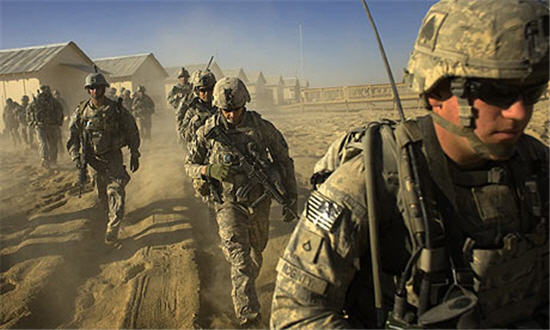
In a much-cited January 2008 report, the Atlantic Council warned, "Make no mistake, the international community is not winning in Afghanistan. Unless this reality is understood and action is taken promptly, the future of Afghanistan is bleak, with regional and global impact."
Subsequent reports by the Council have continued to sound the drumbeat for major policy reform in the AfPak theater. In February 2009, we warned "Pakistan faces dire economic and security threats that threaten both the existence of Pakistan as a democratic and stable state and the region as a whole" and recommended a comprehensive approach that included a massive influx of aid. This was followed three months later with a Ten-Year Framework for Aghanistan.
In June of this year, Shuja Nawaz published "Pakistan in the Danger Zone," which warned, "The Afghanistan war may be lost on the battlefields of Pakistan, where a vicious conflict is now being fought by Pakistan against a homegrown insurgency spawned by the war across its Western frontier."
Now, it appears that the time for warnings is past. A devastating front page story by Greg Miller in today’s Washington Post puts it bluntly: "Taliban unscathed by U.S. strikes."
An intense military campaign aimed at crippling the Taliban has so far failed to inflict more than fleeting setbacks on the insurgency or put meaningful pressure on its leaders to seek peace, according to U.S. military and intelligence officials citing the latest assessments of the war in Afghanistan.
Escalated airstrikes and special operations raids have disrupted Taliban movements and damaged local cells. But officials said that insurgents have been adept at absorbing the blows and that they appear confident that they can outlast an American troop buildup set to subside beginning next July.
"The insurgency seems to be maintaining its resilience," said a senior Defense Department official involved in assessments of the war. Taliban elements have consistently shown an ability to "reestablish and rejuvenate," often within days of routed by U.S. forces, the official said, adding that if there is a sign that momentum has shifted, "I don’t see it."
Miller notes that senior military leaders, including ISAF chief David Petraeus, have recently been touting a string of victories.
U.S. intelligence officials present a similar, but inverted, view – noting tactical successes but warning that well into a major escalation of the conflict, there is little indication that the direction of the war has changed.
Among the troubling findings is that Taliban commanders who are captured or killed are often replaced in a matter of days. Insurgent groups that have ceded territory in Kandahar and elsewhere seem content to melt away temporarily, leaving behind operatives to carry out assassinations or to intimidate villagers while waiting for an opportunity to return.
U.S. officials said Taliban operatives have adopted a refrain that reflects their focus on President Obama’s intent to start withdrawing troops in the middle of next year. Attributing the words to Taliban leader Mohammad Omar, officials said, operatives tell one another, "The end is near."
Later, he notes that,
U.S. officials said the two main branches of the insurgency – the Taliban and the Haqqani network – have been able to withstand the American military onslaught largely because they have access to safe havens in Pakistan.
American Security Project senior fellow Michael Cohen points out that, just yesterday, the Post had a front page story touting American success at pushing the Taliban out of Kandahar, and wryly notes that casual readers might be confused. CNAS’ Andrew Exum picks up on this as well and goes even further, writing a mock Open Letter to the Washington Post ending:
I read these two articles and note that one was sourced almost entirely from officers within ISAF and that the other was sourced almost entirely from officers within the intelligence community. I also note that one article was sourced entirely from Afghanistan while another was sourced entirely from Washington. Was no attempt made by the left hand to figure out what the right hand was doing?
Here’s a radical proposition: why don’t you direct your reporters to pool their sources, work together, and write an article that highlights the conflicting assessments rather than write two articles taking each set of sources at face value? Because I shouldn’t forget to read the newspaper one day and miss the news that we’re winning. Or losing.
It may simply be that everyone’s on a different timetable. Petraeus and company are using the COIN handbook and are taking the long view, with success typically requiring fifteen to thirty years. The intel folks are looking toward the December review and the July 2011 deadline for — well, whatever happens in July 2011 — and don’t see us making progress that’ll matter within that timeframe. And, of course, the various Taliban groups are looking at those same dates and figuring they can run out the clock.
But the fact of the matter is that NATO troops are now into their tenth year in Afghanistan and have seen their mission reduced to "breaking the Taliban’s momentum." And thus far failing to achieve even that decidedly limited objective. Given the rapidly diminishing political will to keep at it, the decided lack of progress against the Taliban, and continuing signs that the Karzai government is more obstacle than ally, it’s safe to say that the future of the NATO mission in Afghanistan is bleak.
James Joyner is managing editor of the Atlantic Council.
Image: aghanistan-troops-usa_2.jpg
